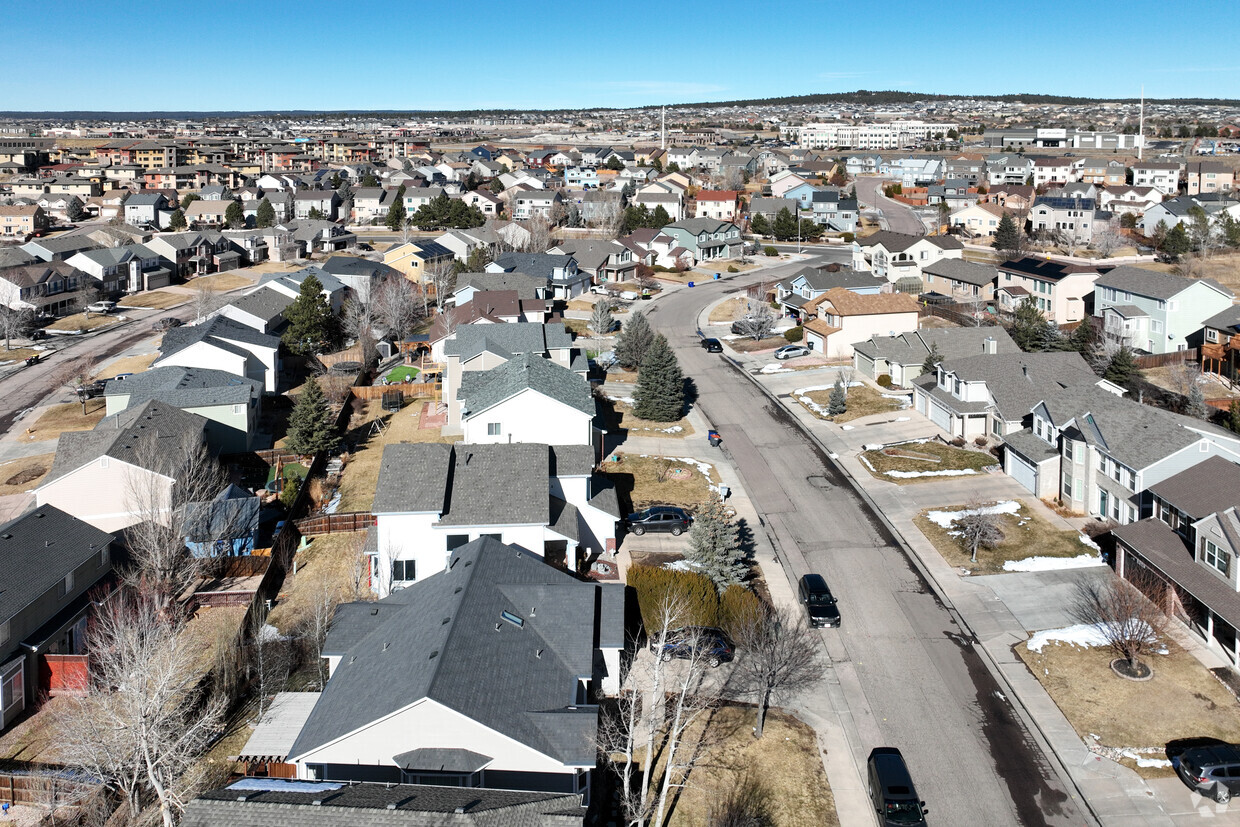
Buying a home in Colorado, especially in its sought-after mountain towns, is a challenge for many prospective homeowners. With stunning scenery and access to outdoor adventures, these areas attract buyers from across the nation. However, limited housing inventory and high demand have made affordability a persistent issue. This article explores why prices remain high and what buyers need to know to navigate the market successfully.
What Makes Mountain Town Homes So Expensive?
If you’re planning to buy a home in Colorado, especially in its picturesque mountain towns, it’s crucial to understand what drives the high prices. From limited land availability to the influence of affluent buyers, several factors have created a housing market where affordability is a significant challenge.
1. Limited Land and Rising Costs:
Colorado’s mountain towns are geographically restricted, with little available land for new developments. Much of the surrounding land is protected for environmental preservation, limiting opportunities to build more homes. Additionally, the cost of construction materials and labor in these remote areas has risen, further driving up home prices.
2. Demand for Vacation and Second Homes:
Many properties in mountain towns are purchased as vacation or second homes by affluent buyers. Furthermore, these buyers often pay in cash, which creates fierce competition and puts first-time buyers at a disadvantage. If you want to buy a home in Colorado, be prepared for tough bidding wars.
3. Post-Pandemic Shift:
During the COVID-19 pandemic, remote work allowed many people to relocate to scenic, less populated areas. Colorado’s mountain towns, with their outdoor lifestyle and stunning views, became a prime destination for these buyers. Furthermore, the surge in demand caused property values to skyrocket.
When Was the Market Truly Affordable?
It’s hard to imagine Colorado’s mountain towns being affordable, but there was a time when prices were more accessible. For buyers hoping to buy a home in Colorado, understanding the market’s history can offer insights into how affordability has changed over the years. 
Housing Affordability Peak in 2012
In 2012, the housing affordability index in Colorado reached its highest point in recent history. Median home prices were far lower than today:
- Single-family homes: Around $200,000.
- Multifamily units: Below $150,000.
This affordability was driven by two main factors: increased housing supply during a pre-recession construction boom and the lingering effects of the 2008 financial crisis.
Impact of the 2008 Financial Crisis
The Great Recession caused widespread foreclosures, leading to an influx of discounted properties on the market. In addition, buyers with financial means capitalized on these opportunities, snapping up homes at lower prices. However, this was a unique period, and it’s unlikely to be repeated under current market conditions.
Challenges Facing First-Time Buyers Looking to Buy a Home in Colorado
First-time buyers often face the toughest challenges when trying to buy a home in Colorado. From rising mortgage rates to fierce competition with cash buyers, the journey to homeownership in mountain towns can feel like an uphill battle.
1. Rising Mortgage Rates:
Even as the federal interest rate has seen cuts, mortgage rates remain high compared to pre-pandemic levels. For first-time buyers trying to buy a home in Colorado, this increases the monthly cost of owning a home and also makes qualifying for loans more challenging.
2. Historic Low for First-Time Buyers:
National data shows that only 24% of homebuyers in 2024 are first-time buyers—a record low. These buyers face significant barriers, including steep home prices and also high down payment requirements.
3. Income and Age Disparities:
The average age of first-time buyers is now higher than ever, as younger buyers struggle to save enough for a down payment. Those who can afford to enter the market often have higher-than-average incomes.
The Role of Cash Buyers
If you’re trying to buy a home in Colorado, it’s important to understand the significant role cash buyers play in this competitive market. Additionally, with deep pockets and immediate purchasing power, cash buyers are reshaping the housing landscape in mountain towns.

1. Cash Dominates the Market:
In Colorado’s mountain towns, cash purchases make up a significant portion of transactions. Many buyers use equity from previous homes or substantial savings to fund their purchases. This dynamic also creates an uneven playing field for buyers relying on mortgages.
2. Equity as a Key Advantage:
Current homeowners have a significant advantage because they can leverage the equity in their existing properties. They’re able to make larger down payments or purchase homes outright, giving them an edge in competitive markets.
Limited Housing Supply
Limited housing supply is one of the biggest challenges for those looking to buy a home in Colorado. Moreover, a shortage of available homes, combined with slow construction, has created a housing deficit that continues to drive prices higher.
1. Decline in New Construction:
Since the Great Recession, new construction in Colorado’s mountain towns has slowed due to rising costs and limited land availability. If you’re looking to buy a home in Colorado, fewer new homes mean higher competition for existing properties, especially in popular areas like Vail and Aspen.
2. Housing Deficit:
There is a nationwide housing shortage, and Colorado’s mountain towns are feeling the impact with low inventory. For those trying to buy a home in Colorado, this shortage can lead to higher prices and also limited options in these desirable areas.
3. Short-Term Rentals:
The rise of short-term rental platforms like Airbnb has reduced the number of homes available for long-term residents. If you’re hoping to buy a home in Colorado, this trend makes it harder to find properties, especially in high-demand mountain towns, as more homes are rented rather than sold.
The Future of Colorado’s Housing Market and How to Buy a Home in Colorado
What does the future hold for those hoping to buy a home in Colorado? While prices in mountain towns may remain high, understanding market trends and exploring potential solutions can help buyers prepare for what’s ahead.
1. Will Prices Drop?
It’s unlikely that prices will drop significantly in Colorado’s mountain towns anytime soon, especially for those looking to buy a home in Colorado. The demand for homes remains high, driven by affluent buyers seeking vacation properties or second homes, and the inventory remains limited. This combination of factors ensures that prices will likely remain elevated. Whether you’re hoping to buy a home in Colorado’s popular resort areas or its more rural regions, understanding these trends will help you better prepare for the challenges ahead.
2. Potential Solutions
To stabilize prices and provide more opportunities for homebuyers, towns are focusing on increasing housing supply. For those looking to buy a home in Colorado, some towns are considering initiatives such as workforce housing projects to make homes more accessible. There are also growing discussions around implementing stricter regulations on short-term rentals, which could free up more properties for long-term buyers. These measures may help reduce competition and make it a bit easier to buy a home in Colorado’s desirable locations in the future.
3. Resilient Market
The Colorado housing market has shown resilience, with many current homeowners having built up significant equity in their properties. As a result, even if economic conditions fluctuate, homebuyers looking to buy a home in Colorado can still expect the market to remain stable. Unlike the Great Recession, homeowners are less likely to face foreclosure, ensuring that homes don’t flood the market and prices stay relatively steady. This makes it a good time to buy a home in Colorado, especially if you’re prepared for the unique challenges of the local real estate landscape.
Tips for Buyers to Buy a Home in Colorado
If you’re planning to buy a home in Colorado, preparation is key. These practical tips can help you navigate the competitive market and also increase your chances of success.
1. Explore Lesser-Known Areas
When looking to buy a home in Colorado, consider exploring lesser-known towns like Leadville or Buena Vista instead of high-priced areas such as Vail or Aspen. These communities often provide more budget-friendly options without sacrificing proximity to outdoor adventures like hiking, skiing, and mountain biking. By broadening your search to these hidden gems, you may discover opportunities to enjoy Colorado’s beauty while staying within your budget.
2. Be Prepared Financially
Buying a home in Colorado’s competitive market requires financial readiness. Start by getting pre-approved for a mortgage so you know your budget and can make strong offers when the time comes. Additionally, having funds ready for a down payment shows sellers that you’re serious and capable of closing quickly. With home prices continuing to rise, being financially prepared can make all the difference in securing your dream home.
3. Work with a Local Agent
Navigating the process to buy a home in Colorado is much easier with the help of a local buyer agent who understands the market. Additionally, they can provide critical insights about mountain town properties, help you identify the best neighborhoods, and negotiate on your behalf. An experienced agent will also guide you through the challenges unique to buying in Colorado’s resort communities, such as limited inventory and competitive bidding situations.
Conclusion
Buying a home in Colorado’s mountain towns is a dream for many, but it comes with its share of challenges. These areas offer incredible natural beauty and outdoor adventures, but affordability remains a hurdle for most buyers.
If you’re determined to buy a home in Colorado, understanding the market dynamics, preparing financially, and working with knowledgeable professionals can help you achieve your goals. While the journey may be tough, the reward of mountain living is well worth the effort.





